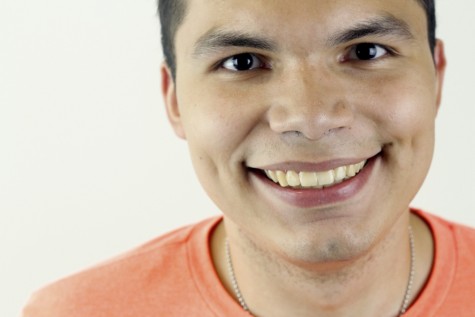Author gives virtual lecture at Eastern
October 27, 2015
Jonathan Safran Foer, the author of “Extremely Loud and Incredibly Close” and “Everything is Illuminated,” gave a virtual lecture centered on his book “Eating Animals,” in Coleman Hall on Tuesday.
Foer’s latest book is currently being made in a documentary film.
The lecture was a part of Farm Forward, a national non-profit agency that covers the costs of the event for educators who are using Foer’s book in their classes.
Jonelle DePetro, the chair for the philosophy department, was the instructor for the “Eating Animals” discussion lecture.
“As far as I know, Foer does these ‘virtual classrooms’ once a year,” DePetro said. “He was discussing his latest book, ‘Eating Animals,’ which is a critique of factory farming. Foer’s book is a sort of ‘tell all’ about the animal suffering and environmental degradation caused by large industrial animal farms.”
Foer was not just conducting this virtual classroom with just Eastern, but with other schools across the country. This list also includes Monmouth College, University of Wisconsin at Madison, Proctor Academy and other schools as well.
The way the lecture worked was each classroom would ask Foer a question and he would take time to answer each question from the different classrooms.
Rachel Gower, a sophomore pre-nursing major, asked Foer what inspired him to write “Eating Animals.”
“Two things prompted me,” Foer said. “One was the birth of my first kid and the knowledge that I would have to make food decision on his behalf. I wanted to make my choice an informed one.”
Foer said the second reason for writing “Eating Animals” has to do with being an on-and-off vegetarian for years.
“I’ve been an on-and-off vegetarian for most of my life. The choice really opened a question for me,” Foer said. “It created discomfort, it just felt like it’s time to figure out what I really feel, what I really think. I was tired of feeling and thinking being so casual about such an important subject and daily activity.”
Foer wrote “Eating Animals” to discuss the difference between factor farming and normal, actual farming.
“I’ve been doing these video conferences for about six years, which actually feels like 2 million years, because they actually require a quite a bit of energy,” Foer said. “To have a conversation about food, as you know, is a very fraught and complicated conversation and to have it in the right way, I think it requires bringing a lot of yourself.”
Foer said it would be easy to give a speech or lecture about the topic, but it is not very productive in the long run.
“What is productive is acknowledging that we are people with a lot of mixed feelings, a complicated history in terms of national culture or familial culture or religious identities,” Foer said. “Now, often vegetarianism, veganism or any kind of engagement with factory farming is posed as a question of identity, something that almost begins to resemble a religion or law.”
Foer said the issue with these different identities is that they can push people to extremes measures.
“The problem with those identities is that as good as they feel, they can push people toward either extremes or toward the kind of flexibility that precludes a really lasting and sustainable engagement with these problems with factoring farming,” Foer said. “I’ve always thought that instead you could think of it as a series of choices.”
Luis Martinez can be reached at 581-2812 or lpmartinez@eiu.edu

















![[Thumbnail Edition] Senior Foward Macy McGlone, getsw the ball and gets the point during the first half of the game aginst Western Illinois University,, Eastern Illinois University Lost to Western Illinois University Thursday March 6 20205, 78-75 EIU lost making it the end of their season](https://www.dailyeasternnews.com/wp-content/uploads/2025/03/WBB_OVC_03_O-1-e1743361637111-1200x614.jpg)




















































